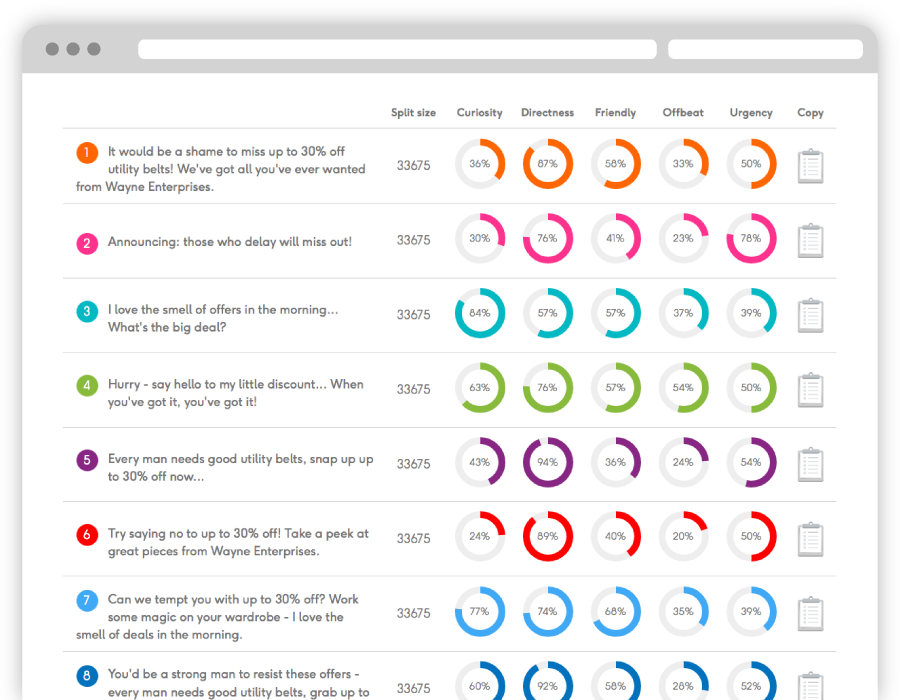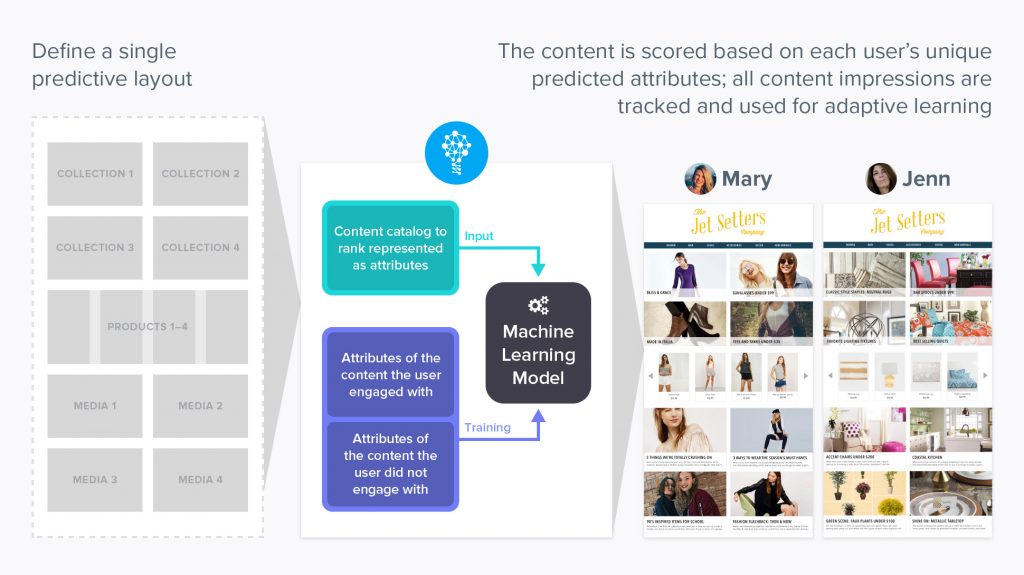Two examples of Artificial Intelligence applied to email marketing

One of the terms that is increasingly being referred to in the world of marketing is the Artificial Intelligence (IA). Articles, posts and books are addressing the issue of how AI will transform (and is already transforming) the world of communication and business . Email marketing, as an industry and discipline, is no stranger to this reality; in fact, companies are appearing on the market that apply Artificial Intelligence to email marketing to make it much more effective.
 Artificial intelligence is already being applied to optimise the content that a brand communicates to its user base. An example of this is the British start-up Phrasee. It is a company that applies Artificial Intelligence to optimise the subject lines, calls to action and content of email campaigns. This provides a solution to the limited ability of human beings to combine words or to express similar ideas and feelings in different ways. For example, let's suppose I have to propose a topic that, conveying urgency, indicates that the sales start tomorrow. Chances are that after some time of reflection the team members will have come up with 4 or 5 options for the topic. But how many real possibilities are there to combine the language to convey the message in that emotional tone? Of course, there are many more, and which ones will come closest to the formula that converts the most? This is where Artificial Intelligence brings its value. After an initial "load" with the words, subjects and calls to action that a brand uses most and the results obtained in the past (openings, conversions), the Phrasee algorithms will analyse this vocabulary by associating different emotional dimensions (urgency, clarity, openness, curiosity...). From this moment on, every time we want to test different subjects, Phrasee will propose alternatives based on this analysis. The results obtained will feed the algorithm and it will be refined.
Artificial intelligence is already being applied to optimise the content that a brand communicates to its user base. An example of this is the British start-up Phrasee. It is a company that applies Artificial Intelligence to optimise the subject lines, calls to action and content of email campaigns. This provides a solution to the limited ability of human beings to combine words or to express similar ideas and feelings in different ways. For example, let's suppose I have to propose a topic that, conveying urgency, indicates that the sales start tomorrow. Chances are that after some time of reflection the team members will have come up with 4 or 5 options for the topic. But how many real possibilities are there to combine the language to convey the message in that emotional tone? Of course, there are many more, and which ones will come closest to the formula that converts the most? This is where Artificial Intelligence brings its value. After an initial "load" with the words, subjects and calls to action that a brand uses most and the results obtained in the past (openings, conversions), the Phrasee algorithms will analyse this vocabulary by associating different emotional dimensions (urgency, clarity, openness, curiosity...). From this moment on, every time we want to test different subjects, Phrasee will propose alternatives based on this analysis. The results obtained will feed the algorithm and it will be refined.

Digital Response has not had the opportunity to test the system in a real case. However, we do know of a few good examples. The first is that Ebay has managed to generate 2.5 million more opens per campaign by using Artificial Intelligence to optimise issues..
Another application of Artificial Intelligence can be found in the personalisation of content based on contextual variables such as seasonality or stock, user behaviour in e-commerce or product attributes. In the field of email marketing, in the retail sector there are Artificial Intelligence solutions that recognise and understand the preferences of each user in terms of size, style, colour and brand. In addition, these systems learn with each interaction the user has with the brand, so that an iterative and constant learning process is established.. Keep in mind that these systems analyse billions of customer-centric touch points and product data. All this information is structured and classified in a way that allows predicting which content will be the most relevant for each individual at any given time. In this area, it is worth mentioning the efforts of companies such as Jetlore, that are incorporating these Artificial Intelligence systems to optimise the content shown to each user in email marketing campaigns.
